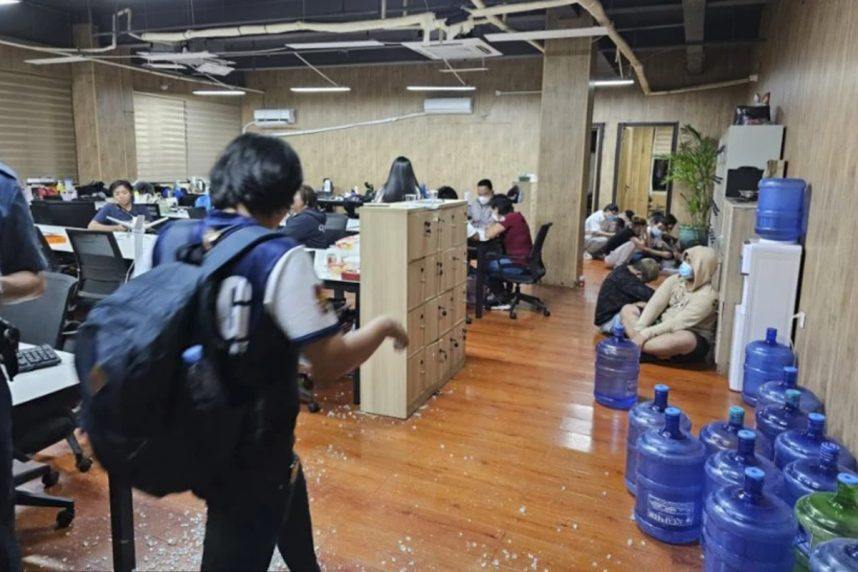The Philippine National Police’s (PNP) Anti-Cybercrime Group carried out a series of raids in Manila on Tuesday that the law enforcement agency said resulted in the freeing of more than 2,700 suspected enslaved workers.

PNP officials said the operation targeted numerous businesses engaged in offshore gaming, known locally as Philippine Offshore Gaming Operators (POGOs). Police said 2,714 people believes to be in forced labor were rescued in Manila’s Las Pinas City.
All rescued persons are documented for booking and possible repatriation,” read a statement from the National Capital Region Police Office.
POGOs were authorized under the Rodrigo Duterte presidency, which ran from June 2016 through June 2022. The online gaming sites aren’t allowed to accept players from inside the Philippines but instead, target players in other countries, most specifically in China where most forms of gambling are illegal.
Slaves Freed
Philippines police said of the more than 2,700 workers thought to be working in forced labor, 1,528 are Filipino residents. Six hundred were from China, 183 were from Vietnam, and 137 were from Indonesia.
Rescuee Origins
- Philippines — 1,528
- China — 600
- Vietnam — 183
- Indonesia — 137
- Malaysia — 134
- Thailand — 81
- Taiwan — 21
- Nigeria — 7
- Yemen — 4
- Pakistan — 2
- South Africa — 2
- India — 1
- Somalia — 1
- Sudan — 1
- Cameroon — 1
- Iran — 1
POGOs have been criticized by foreign governments, most importantly China’s Communist Party, for marketing online gambling websites to people who are prohibited from accessing such games via the internet. Duterte considered ending the trade but decided the tax benefit from such online casino sites was too important.
I decided we need it to benefit the interests of my country,” Duterte said in 2019.
Duterte’s successor, Philippines President Bongbong Marcos, has so far allowed the POGO industry to continue, but this week’s crackdown on enslaved workers suggests the industry is coming under more law enforcement scrutiny.
Hiring Notice
The US State Department this month cautioned travelers that casinos throughout Asia are being increasingly used for human trafficking, sometimes referred to as “modern slavery.” The federal agency’s “2023 Trafficking in Persons Report” detailed an example of a 26-year-old female from the Philippines who responded to an online job listing to work in a call center in Cambodia.
After traveling to Cambodia, the woman, who was pregnant at the time, was enslaved and forced to work for a fraudulent cryptocurrency scheme. She later lost her unborn child before managing to escape.
Along with the Filipino police infiltrating POGOs suspected of violating human rights, the Philippines Amusement and Gaming Corporation (PAGCOR) this week issued a notice warning about job postings for “offshore gaming-related employment.”
“The job postings, usually looking for prospective customer service representatives with experience in cryptocurrency trading, entice unsuspecting victims with high-paying jobs and numerous attractive benefits only to find themselves being used in scam activities,” the notice read. The gaming operator-regulator encourages Filipinos to “be vigilant and cautious of these job advertisements.”
The post Philippines Police Rescue 2,700 Enslaved Workers from Offshore Gaming Hubs appeared first on Casino.org.


